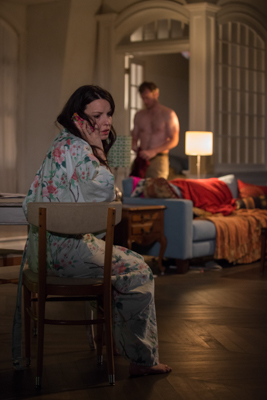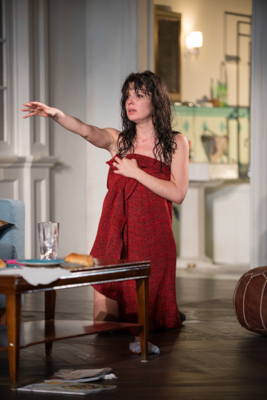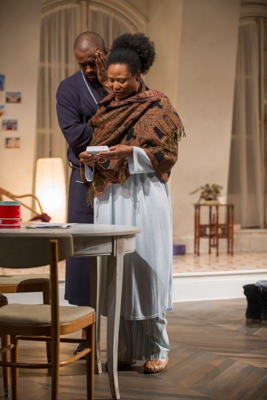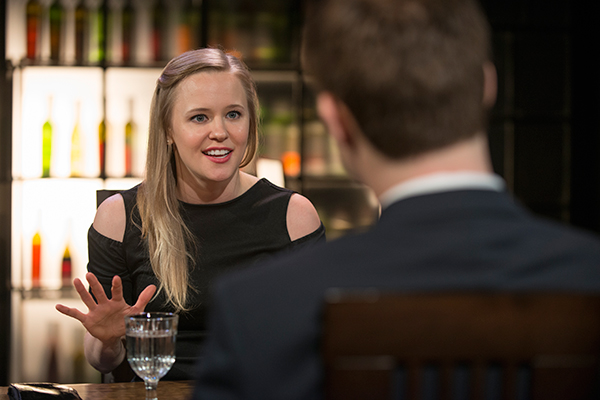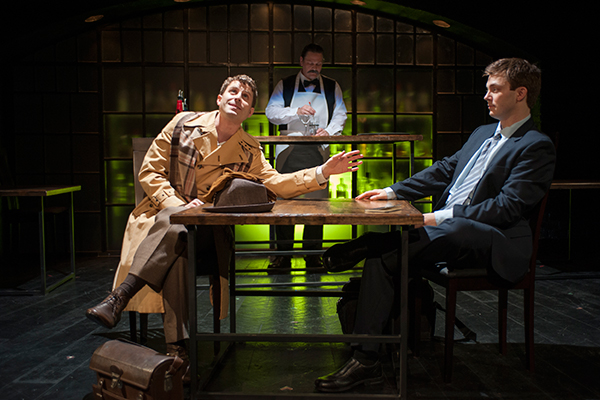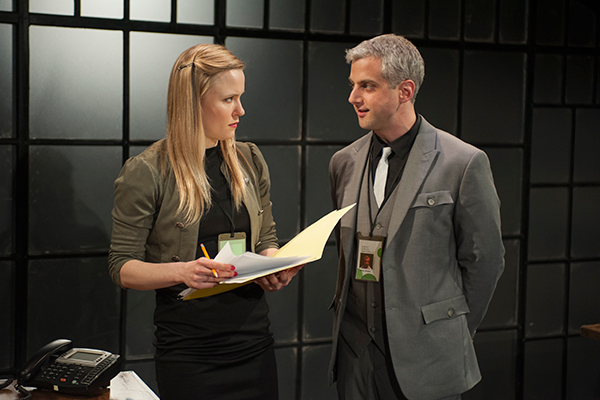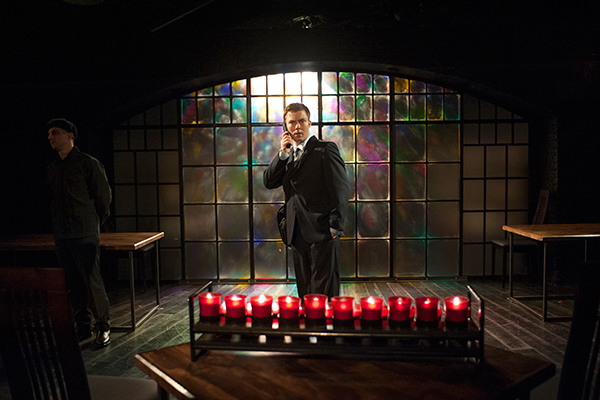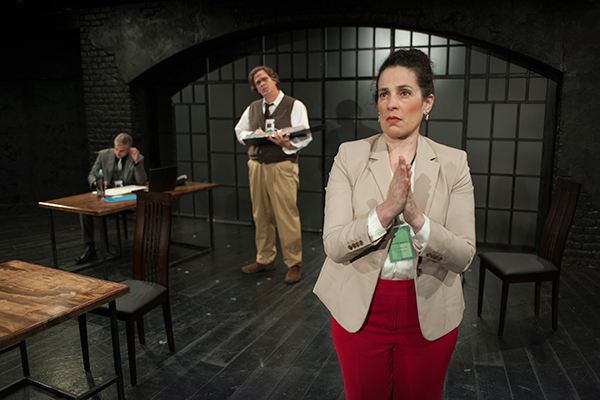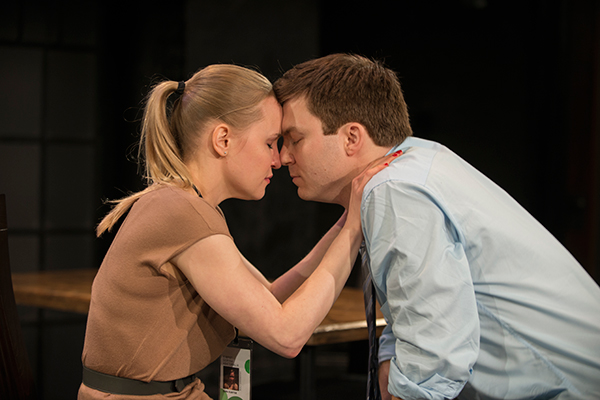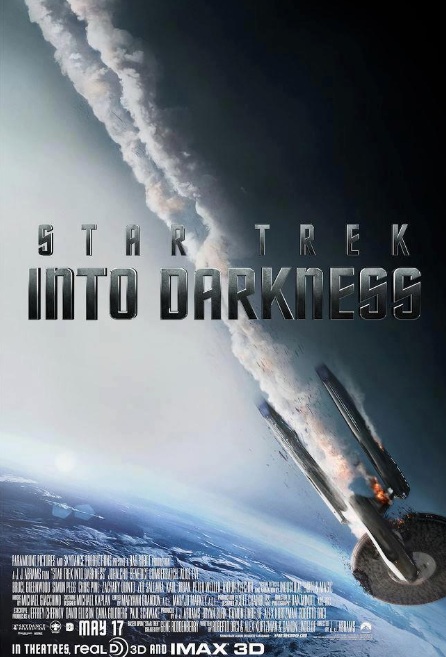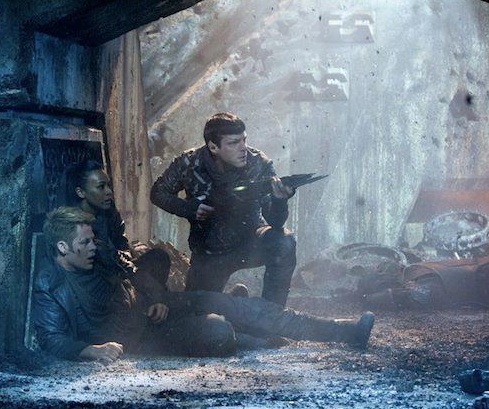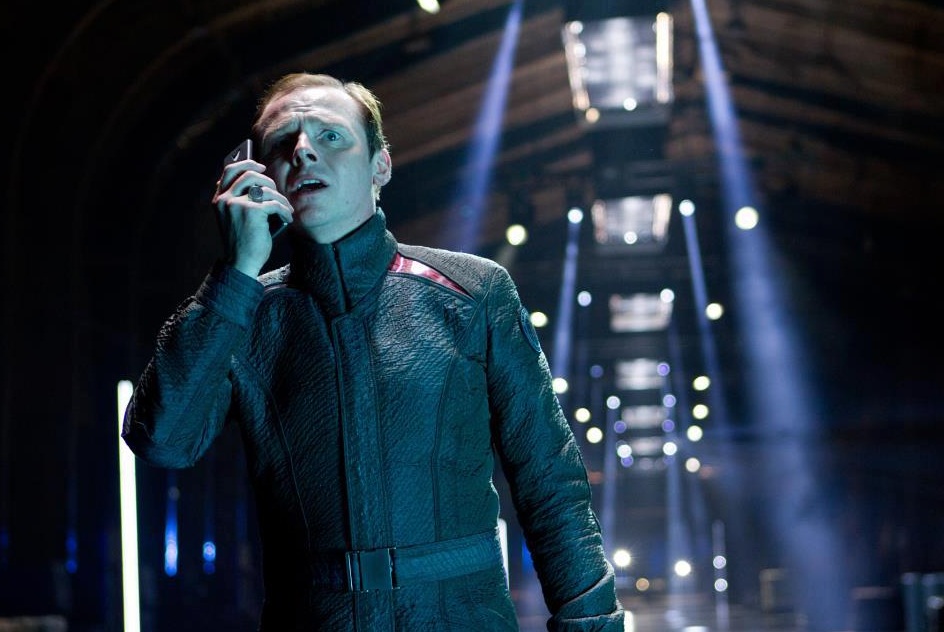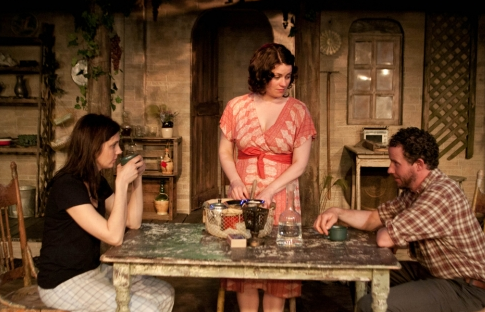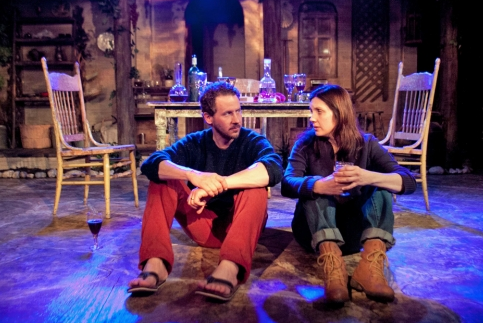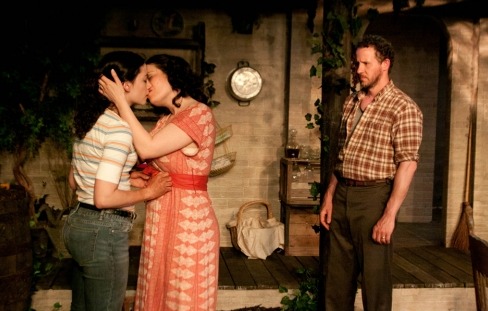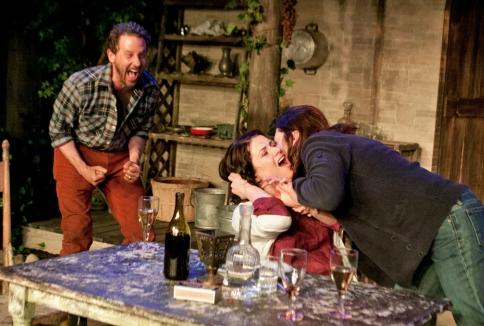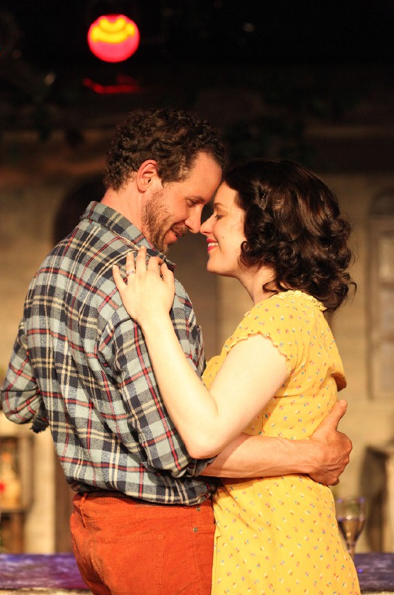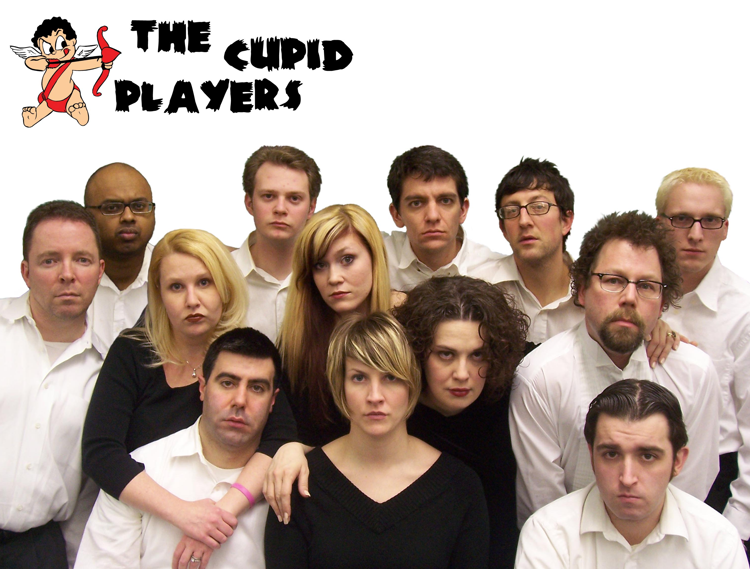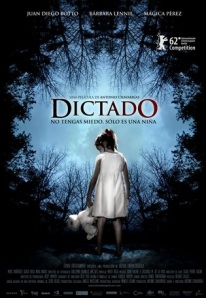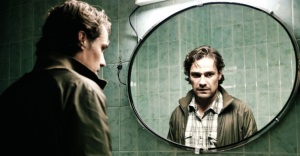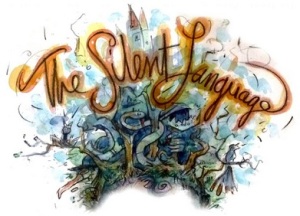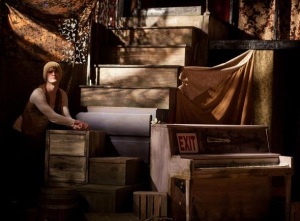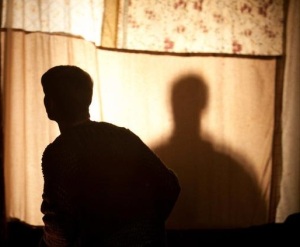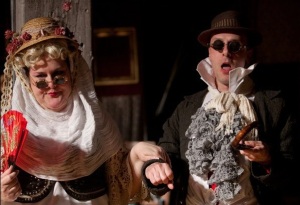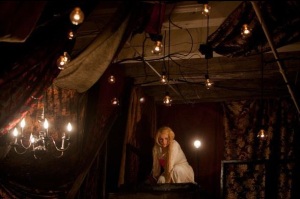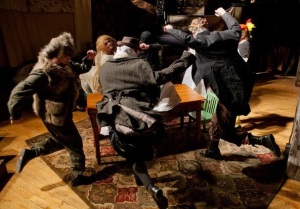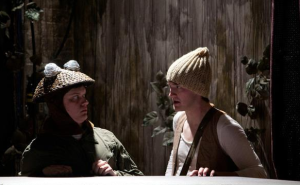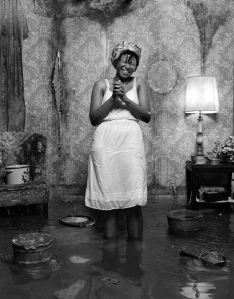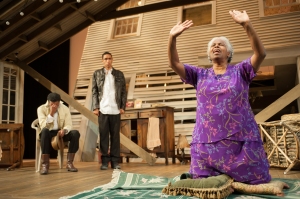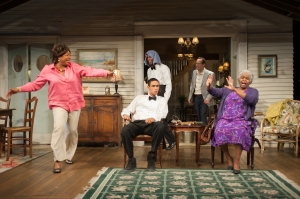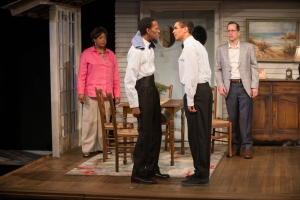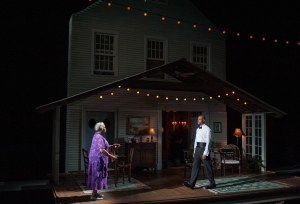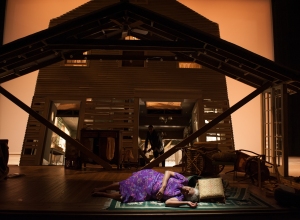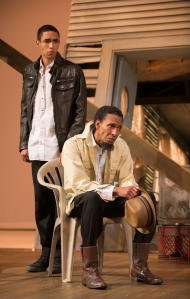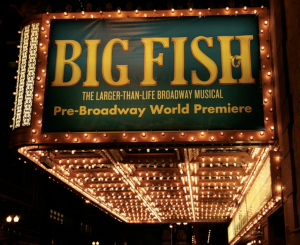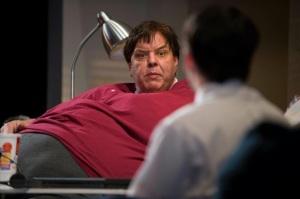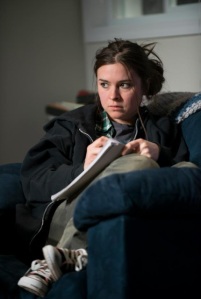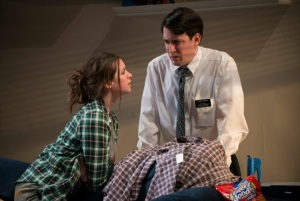Belleville
WHAT: Belleville
WHEN: June 27 – August 25, 2013 (schedule)
WHERE: Downstairs Theatre, Steppenwolf (1650 N. Halsted St.)
RUNTIME: 1 hour and 40 minutes, no intermission
WHO: Steppenwolf Theatre Company
PRICE: $20-78
OUR RATING: Do It!
Amy Herzog’s intriguing work about two Americans living fitfully in the French capital, albeit in a peripheral neighbourhood, uncovers for us one of the deepest fears we can have about anyone – what is a person’s true nature? While producing a facade of slightly Bohemian homeliness, Herzog illustrates that just under the surface writhes a secret world, waiting to be exposed.
Adam: Relationships are ongoing affairs – each one meanders in such a way as to make it totally indiscernible to the the outside world. Couples present visions of themselves, and to each other, and Herzog’s keen writing and knack for accentuating a fractious situation sheds light on the darker side of the individual – the part of us that is not truly known.
Zack (Cliff Chamberlain) and Abby (Kate Arrington, Steppenwolf ensemble member) live in a limbo world in which neither of them belong: an all-American home thrust into a foreign city and, to make matters more confusing, they reside in a district populated by the scions of the Francophone empire. Perhaps it is this obviously different backdrop that allows Amy Herzog’s characters to love and fight so passionately, but there is also a sickness flowering between them, fueled by a need to escape, an escape from their very contained reality.
This relationship is instantly illuminated as tainted by neuroses: both parties have much to answer for, and the unknowing juvenal nature of their behavior can take an audience from laughter, to repulsion, and finally, to shock.
Alicia: After reading the script for Belleville I was excited to see such a riveting play performed by a quartet of some of Chicago’s finest (and sexiest) actors. Amy Herzog’s script might have a few flaws, but she is a very talented writer, and what seems most important are the levels of suspense she creates. You’re not suspended in one feeling, but taken on a journey, so that once you reach the climax of the production, you’re on the edge of your seat just waiting for a fall, but what kind of fall that is, and from how high, is a mystery.
My first impression of Steppenwolf’s production, however, was not quite so high, as I was immediately put off by James Schuette’s set design. Two young expats with two kids manage an apartment complex in the North of Paris, and two Americans with low-paying jobs are coming to live there. But the set is relatively extravagant, and seems not-quite-so affordable for these characters.
Nonetheless, the show as a whole was a definite thriller, and even though I already knew the suspenseful ending, the production and Anne Kauffman’s direction brought a whole new life to a complex and intelligent script.
Final Thoughts: Be wary of who you go to see Belleville with. We’ve heard of couples having huge fights after the play, each identifying with different characters and viewpoints. But, if you can take that emotion home with you, then a piece of art has done its job.
P.S.: Despite our love for most Steppenwolf productions, we must admit we were furious with our seats. Steppenwolf should be ashamed to seat patrons in their box seats if there are sightline issues. We could not see the entirety of stage right. Luckily, most of the thrilling action occurs stage left, so we felt more sorry for the folks seating in the house right boxes. Nonetheless, disgustingly disappointing.

